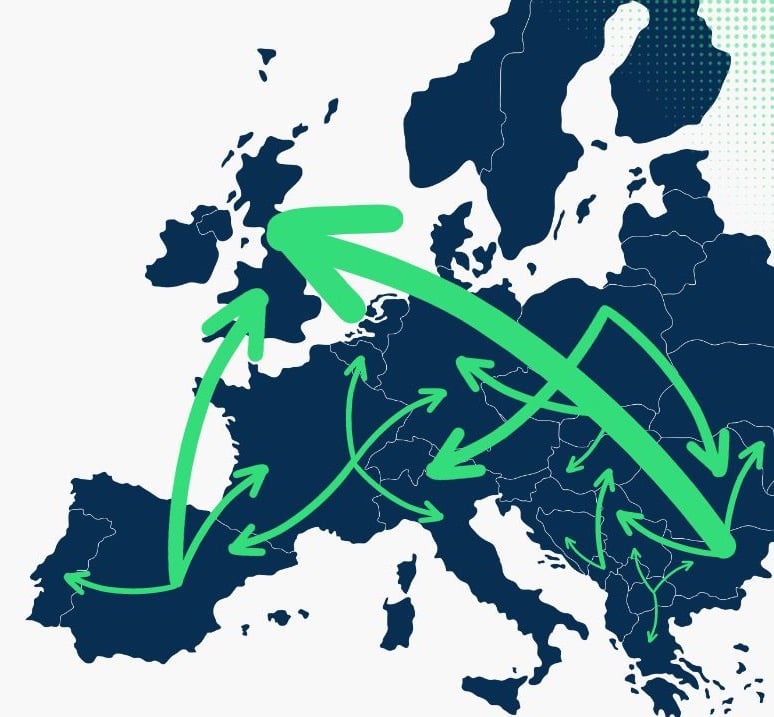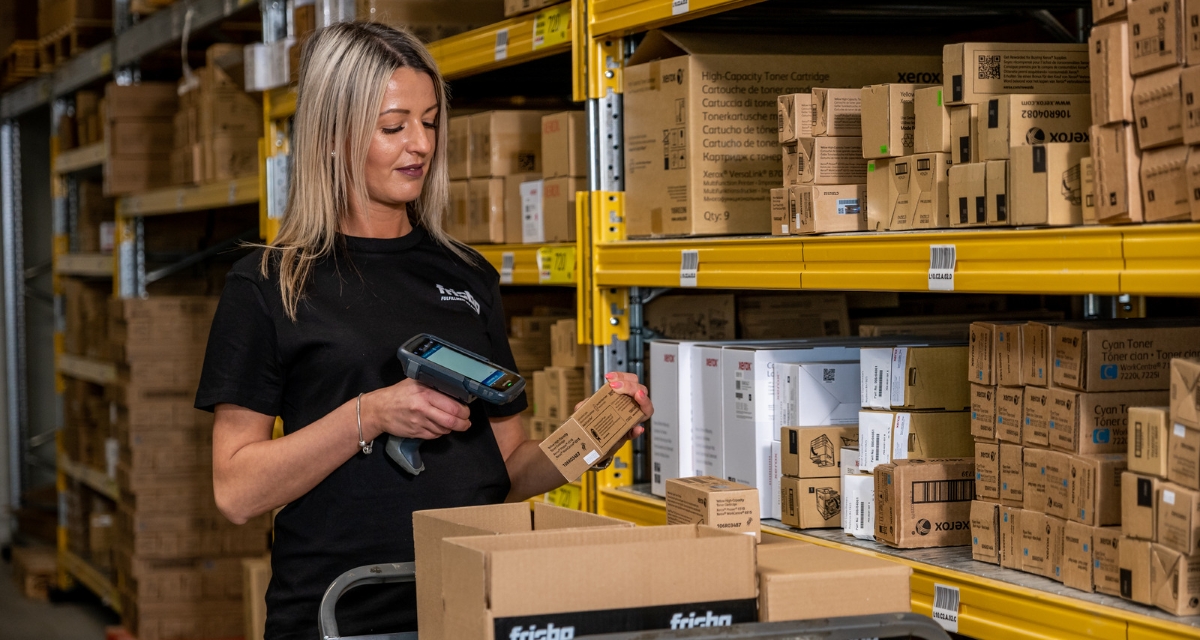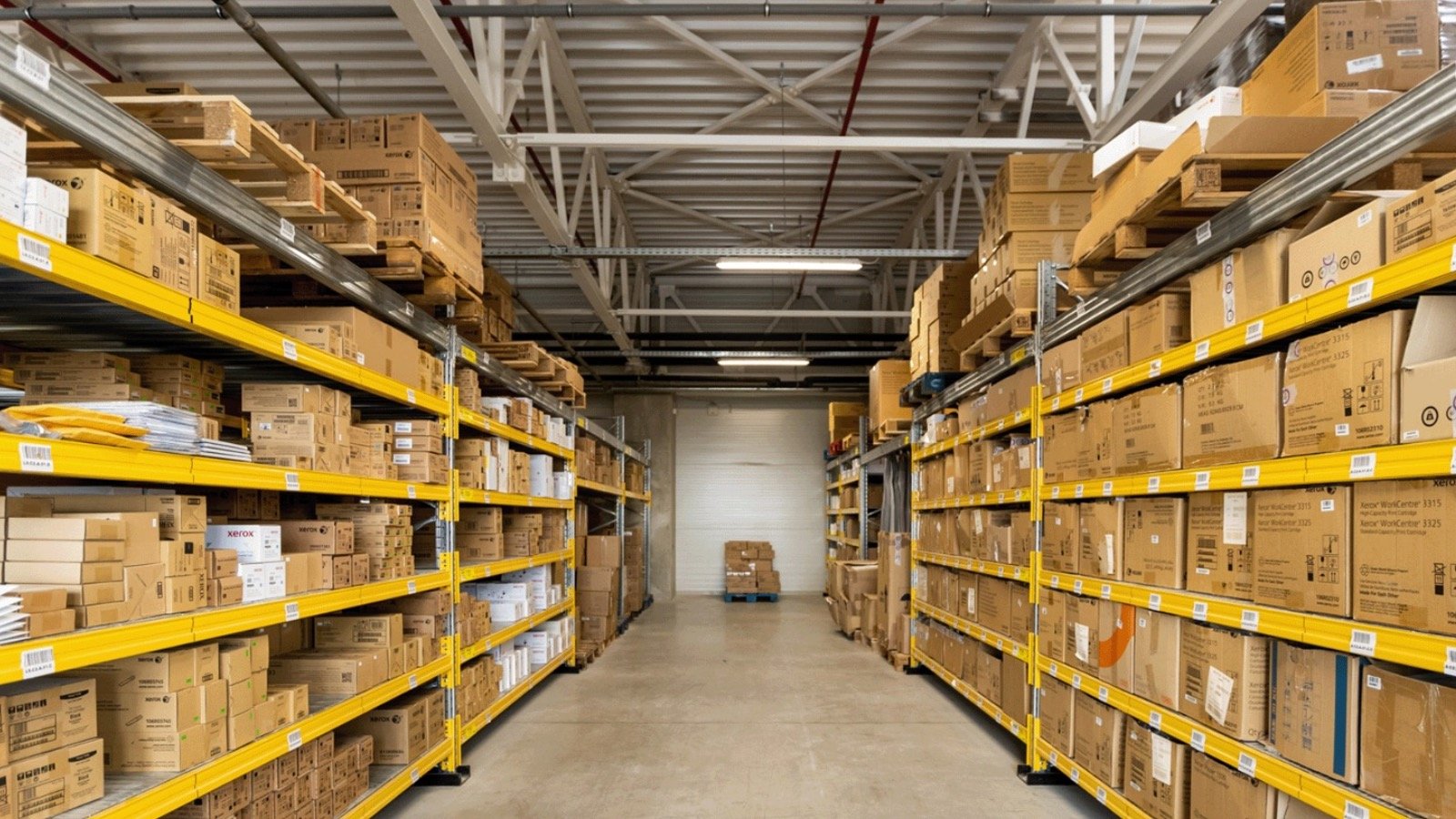To keep up with the logistical demands of their business, many e-commerce use outsourcing in supply chain management. The main reason behind this is that managing a supply chain involves multiple costs and complexities that can easily become overwhelming.
However, is outsourcing the right choice for everyone? Let's take a closer look at the advantages and disadvantages of outsourcing in supply chain management for e-commerce businesses.
I. Understanding outsourcing in supply chain management
Outsourcing has become a popular strategy for supply chain management. But what exactly does it mean to outsource an activity to someone?
It simply means delegating that activity to an external company or service provider. When it comes to supply chain management, outsourcing can include activities like logistics, transportation, warehousing, inventory management, and customer service.
Why is outsourcing popular in e-commerce?
Thanks to e-commerce, companies can now outsource their nonessential supply chain activities and concentrate on areas that drive the most profit. However, from manufacturing and customer service, there is one specific type of supply chain outsourcing that more and more online businesses rely on: logistics outsourcing.
How does logistics outsourcing work?
Imagine a small e-commerce business that specializes in handmade jewelry. To fulfill customer orders, the business needs to handle inventory management, product packaging, and shipping. Yet the owner realizes that managing these activities on their own is quite time-consuming and minimizes their primary strengths of designing and crafting exquisite jewelry pieces.
The e-commerce entrepreneur then decides to delegate the order fulfillment process to a third-party logistics provider (3PL). This way, the 3PL takes care of all the logistics operations, including receiving inventory, storing it in a warehouse, packing orders, and shipping them to customers. Consequently, the entrepreneur no longer needs to worry about these tasks and can concentrate on designing and making new pieces of jewelry.
Types of outsourcing in logistics
While some e-commerce companies choose to outsource only part of their logistic chain—for example, the storage or transportation of products—there are several processes a logistics partner can help with. Here's a list:
- Storing products in inventory
- Handling customer orders
- Monitoring inventory levels
- Fulfilling customer orders
- Automating the shipping process
- Delivering orders cross-border quickly
- Managing the product returns

II. Advantages and drawbacks of outsourcing in supply chain management
When e-commerce businesses partner with a logistics provider, they can finally focus on what they do best while the experts handle the complicated supply chain management. However, before jumping into outsourcing, it's crucial to consider both the upsides and downsides carefully.
Advantages of outsourcing
Cost efficiency
Outsourcing enables online business owners to reduce overhead costs and invest in crucial areas that are more important to their success than logistics management.
For instance, a logistics provider can leverage their network of carriers to negotiate better rates for shipping, thus reducing the cost of transporting goods. In addition, logistics providers offer extra services like warehousing, inventory management, and order fulfillment. This saves businesses from spending money on staffing, equipment, and storage space.
Access to expertise and advanced technology
When outsourcing to logistics providers, e-commerce businesses have access to the latest technology, which can help them streamline operations and improve efficiency. This is especially important if the company has just started out and doesn’t have in-house expertise or the budget for developing new systems.
Imagine an online retailer trying to manage multiple sales channels while also keeping track of inventory. It can easily become too much to handle. Partnering with a logistics provider becomes crucial for ensuring smooth order fulfillment.
More focus on core business operations
When it comes to handling time-consuming processes like managing logistics, the core of the businesses takes the hit.
However, when outsourcing comes into play, businesses can concentrate on their strengths, whether we're talking about product development, marketing, or customer service. A clothing retailer can focus on designing and producing new clothing lines while leaving the logistics of shipping and warehousing to a third-party provider. This will further increase customer satisfaction and drive growth.
Greater flexibility and ability to grow
Zippia reports that only 22% of companies currently have a proactive supply chain network.
If an e-commerce business encounters a sudden increase or decrease in sales, outsourcing logistics to a 3PL allows for quick adjustments in operations to meet customer demand without compromising quality or service. This flexibility can help businesses stay agile and responsive to market changes.
Moreover, it can help businesses easily expand across borders, ensuring a high potential for growth.
For example, an e-commerce business looking to broaden its reach internationally can team up with a logistics provider that has fulfillment centers in various countries. This approach enables businesses to have their inventory stored closer to their customers, resulting in reduced shipping times and costs.

Risk management
Outsourcing activities to partners who have a well-thought risk management strategy in place will help e-commerce businesses minimize the impact of disruptions to their supply chain, protect their inventory, and maintain their reputation.
For instance, if a delivery courier experiences a delay in their operations, a logistics provider can quickly implement backup plans to ensure that the e-commerce business can fulfill customer orders without delay.
Drawbacks when outsourcing
1. Quality control issues
When a business relies on a logistics provider to manage its supply chain, it may lose direct control over the quality of its products and the customer experience.
This can be a bit tricky, particularly if the logistics provider doesn't handle the inventory well or doesn't meet the quality standards, which may result in poor outcomes like product defects, low stock levels, and unsatisfied customers.
2. Communication challenges
Clear and effective communication is key for outsourcing to work. Language barriers, time zone differences, and cultural contrasts can pose a challenge, leading to miscommunication and errors. If the logistics provider fails to convey important information, such as a delay in delivery or a change in inventory levels, it can impact the e-commerce business's ability to meet customer demand.
3. Dependence on the outsourcing provider
Outsourcing in supply chain management makes a business dependent on the provider's expertise, technology, and resources. If you choose to outsource logistics, make sure that your provider has a proven track record and that they can meet your specific requirements.
How to mitigate the drawbacks of outsourcing?
- Choose a partner that has in-depth knowledge of your industry and business requirements.
- Implement an effective communication strategy with the team and provide them with the resources they need to do their job well.
- Have clear contractual agreements so that you have a clear understanding of how much the outsourcing company will charge you for their services.
- Establish transparent and achievable expectations to ensure that both parties are on the same page at all time.
- Do regular monitoring and quality checks so that you can spot any issues early on and take action before they become too big to handle
III. Recap
Overall, outsourcing logistics in supply chain management can be a great asset for e-commerce businesses. This can help businesses streamline their shipping process, manage inventory levels, and fulfill customer orders more efficiently. But, as every light has its shadows, outsourcing comes with some disadvantages, such as quality control issues, communication challenges, and dependence on the outsourcing provider.
In the end, it's just a trade-off between outsourcing's benefits and its drawbacks. To make the most out of it, it's important to select a partner that understands their industry, create an open communication channel, and, last but not least, establish straightforward contractual agreements.
At Frisbo, we understand that finding the right logistics partner can have a huge impact on your company's bottom line. That is why leading brands and e-commerce companies trust us to manage their order fulfillment operations—both domestically and internationally.
When outsourcing with Frisbo, you benefit from:
- +52 fulfillment centers throughout Europe;
- Plug&Play Integrations with any marketplace & e-commerce platform;
- AWBs and real-time tracking for all your orders;
- Customized invoices on behalf of your company;
- Reduced shipping costs with access to local courier rates;
- Streamlined returns process with addresses of returns in every country you sell to;
If you need any extra info about our services, don't hesitate to drop us a message.




